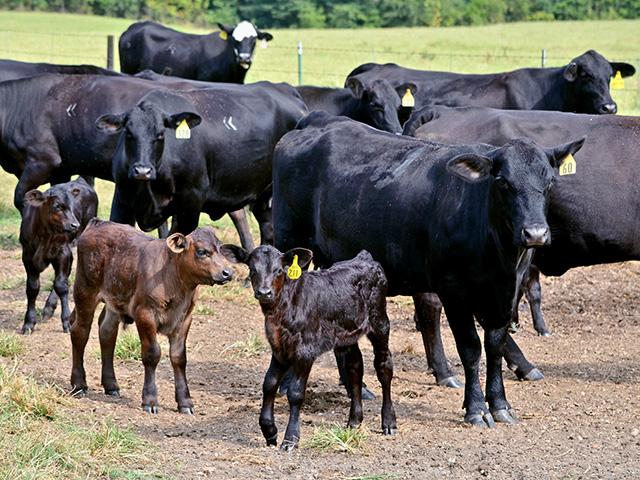Ask the Vet
Reader: We had a cow calve in June, and she did not clean off. My father wanted me to go in and remove the placenta. I called our veterinarian, and he told me to leave the cow alone unless she got sick. It took over a week, but she finally passed it, and she seems fine. My father, who is almost 80, still thinks I should have removed it like he used to do. What do you recommend?
Dr. McMillan: I think your veterinarian was absolutely correct in his recommendation. Manually removing fetal membranes (a more technical term for what was hanging out) has been shown to damage the caruncles -- the attachments sites for the placenta in the uterus. This has the potential to reduce fertility.
There are diseases, including brucellosis and leptospirosis, that can lead to retained fetal membranes. These diseases are zoonotic, meaning they can pass between animals and people. So, if you attempted to "clean her off," and she had one of these diseases, you could potentially infect yourself or the cow, while damaging the uterus by introducing infection.
The fact is that the weight of fetal membranes and a mild infection at the site where the caruncles and cotyledons attach eventually leads to detachment naturally. Those rare occasions when a cow will get sick like this seem more common in the summer, a good reason to avoid summer calving if you can.
P[L1] D[0x0] M[300x250] OOP[F] ADUNIT[] T[]
Call your veterinarian if you think you have a sick cow. Often, you'll notice she's gone off her feed. She may need antibiotics and anti-inflammatory medications. Very sick cows may need more intensive treatments, possibly including oral or intravenous (IV) fluids. I still like to flush the uterus of these cows with a warm, antimicrobial solution.
In the past, many veterinarians have recommended oxytocin or one of the prostaglandins (Lutalyse, Estrumate, etc.) for retained placenta. Oxytocin, the milk letdown hormone, causes the uterus to contract during birth, but it has little to no effect after 24 hours. Lutalyse has a similar effect, but there is no evidence contractions help the placenta come out.
So, my recommendations? Avoid summer calves and be patient when a cow does not clean off. She is better off in a clean pasture than in a dirty lot. This will almost always save you time and money, and be better for the cow.
Reader: We had a stray puppy come up to our barn, and my daughter fell in love with it. It is covered with fleas and ticks, and has a horrible skin condition. What does he need to bring him around?
Dr. McMillan: This puppy needs to see your veterinarian immediately. Fleas and ticks are what you see, but other potential diseases could threaten this puppy's life and potentially affect your family. The good news is your veterinarian can assess this puppy and develop a treatment plan that, in almost all cases, will get this little guy on the road to recovery.
Fleas and ticks are gross, but more importantly, they can lead to skin disease and anemia. They can also carry diseases that affect both dogs and humans. Sarcoptic mange, for example, leads to skin infection, and dogs with it will itch badly. But, it can pass to humans, where it looks a lot like redbug or chigger bites. Demodectic mange, or "red mange," is noncontagious and most commonly seen in young dogs. It presents as a spot or spots of hair loss, but can progress to severe skin infections and almost no hair.
Add to this the fact most stray puppies have worms. These parasites can make them sick and more vulnerable to other diseases, especially canine parvovirus. Hookworms and roundworms can infect people. We deworm every puppy the first time we see them, even if we do not find eggs. In addition, if it's healthy enough, we give vaccinations, and we also start puppies on heartworm preventive the first visit.
You have a project ahead of you, but it is a good project for a child and a family. There are certainly risks that this puppy could get sick, and there are some risks to people. But, with proper care from you and your veterinarian, most of these puppies will make a complete recovery. Stray dogs almost always become extraspecial family members.
> Please contact your veterinarian with questions pertaining to the health of your herd. Every operation is unique, and the information in this column does not pertain to all situations. This is not intended as medical advice but is purely for informational purposes.
> Write Dr. Ken McMillan at Ask The Vet, 2204 Lakeshore Dr., Suite 415, Birmingham, AL 35209, or email vet@progressivefarmer.com.
[PF_1020]
(c) Copyright 2020 DTN, LLC. All rights reserved.




